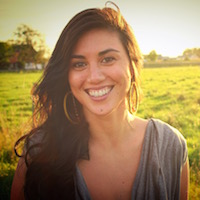As I go about my days sipping my coffee, shopping at the grocery store and waiting to hear about my Swedish residency acceptance, I cannot fathom what it would be like to be running for my life.
It is nowhere near my scope of reference. My journey to Sweden did not include a several thousand-dollar ticket on a boat with no guarantee that I would arrive alive and safely with all of my family members. I haven’t had to witness first hand the violence, the destruction or the uncertainty of fleeing my home. Nor have I yet witnessed refugees arriving by the tens of thousands.
At least 7.6 million people have been displaced within Syria and more than 4 million have become refugees in neighboring countries.
Still, the crisis doesn’t end if and when refugees arrive on foreign land. The issue merely shifts and transforms. It takes on new smells, has different faces and new lands and languages to adapt to. Refugees become another’s problem on country x, y or z’s home turf.
Sweden has accepted nearly 70,000 refugees since the conflict began in 2011.
With a total population of fewer than 10 million, this is the highest per capita of any country in Europe. Currently, one in five Swedes has a foreign background. Refugees are given benefits like healthcare and education in the Swedish language and culture. With the recent influx of refugees, like many countries, Sweden is struggling to keep up, urgently hiring 1,000 new employees to help with the acceptance and integration process.
“We accept that every person has a right to seek asylum,” Swedish Foreign Affairs Minister Margot Wallstrom said. “This also puts the European solidarity to a test. I think it’s important that we signal being a community that rests on common values of democracy and defense of human rights.”
Germany is leading the pack—taking in over 100,000 asylum seekers—and has pledged billions of dollars in assistance.
The U.S. has taken in a mere 1,500 refugees since 2011. They are expecting to take in another 300 people by the end of the year. On the other hand, the U.S. has given the largest amount of financial aid totaling $574 million.
Geographically, refugees are fleeing to get the closest help they can find, yet being the philanthropic melting pot that we pride ourselves to be—and once upon a time being the promise land for immigrants—could some of that $574 million be spent on getting a few more asylum seekers to the safe land in the U.S.?
When does it become less about nationalism and more about humanism?
How can I, or anyone, make a difference that isn’t directly affected by this?
Some may think it doesn’t apply to them because it’s not visible in their life or on their doorstep. Or, to be frank, some may not care because it’s simply not their problem. If the tables were turned and it was me in that situation, what kind of treatment would I so desperately hope for?
One journalist in Hungary responded with fear and hate, kicking people as she filmed refugees entering the country by the hundreds.
At our core, as humans, we yearn to live a dignified life, and right now millions of people are fighting for their lives and the lives of their families. This mass movement of refugees is the world’s current reality. I think about it on a micro level and envision the change beginning with each individual. As the quote goes by Howard Zinn, “Small acts, when multiplied by millions of people, can transform the world.”
Some will argue that my thoughts are naive, unrealistic or say that’s just not the way the world works. I ask, why the h*ll not?
We have fought war upon war and it hasn’t seemed to get us much peace. Excuse my “hippy pleas” for a moment, and why not give it a try.
Iceland is.
After hearing that the government would only accept 50 refugees over the next two years, award-winning author Bryndis Bjorgvinsdottir took to social media and started the Facebook group, Syria is Calling, which 18,000 people joined.
Many have opened up their homes, offered plane tickets, donated their time and have provided other services and supplies.
How many refugees Iceland (population, 323,000) will take is still unknown.
Where is the balance between living our lives and doing what we can? The argument in Sweden would be that it would be unwise to let too many people in until the balance of the social system is thrown out of whack. People who don’t work and live off of the system become the responsibility of the people much more than in other capitalist countries. Still, doing what we can is better than doing nothing. Syrian neighbors in the Gulf States, like Saudi Arabia and Qatar, who combined could house over 2 million refugees, are taking in no one.
Syria is not an isolated incident.
If it’s not Syria, then the person I pass in the street or bump into at the grocery store could be from South Sudan, Iraq or Ferguson.
Making a difference can mean looking that person in the eye and smiling at them. It’s as simple, but often as difficult, to choose love rather than fear or hate. One random act of acknowledgement and kindness is a beautiful place to start a revolution.
“Refugees are our future spouses, best friends, our next soul mate, the drummer in our children’s band, our next colleague, Miss Iceland 2022, the carpenter who finally fixes our bathroom, the chef in the cafeteria, the fireman, the hacker and the television host.” ~ Bryndis Bjorgvinsdottir
~
Learn More:
CNN
The Guardian
The Economist
~
Relephant:
Hungarian Photographer does the Unthinkable to Refugee Carrying a Child. {Video}
~
Author: Steph Sanders
Editor: Caitlin Oriel
Image: Flickr/Freedom House







Read 0 comments and reply